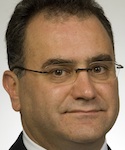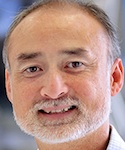Gulf Coast Consortia announces Dunn Foundation seed grants for cancer, mold infection, hearing and neuron research
Four teams of scientists at Rice University and other Gulf Coast Consortia (GCC) institutions have earned research seed grants from the John S. Dunn Collaborative Research Awards.
Winning projects include research on invasive mold infections, neural mechanisms that control carbon dioxide and oxygen levels in the blood, remediation for chemotherapy-induced hearing loss and ways to maximize radiation of tumors with gold nanoparticles. The program also will fund a multidisciplinary workshop at the intersection of regenerative medicine, neuroscience and neuroengineering.
The 10-year program began in 2008 to support new collaborations between researchers at Rice’s BioScience Research Collaborative (BRC) and their partners at other institutional members of the GCC. The program is funded by the John S. Dunn Foundation and administered by the GCC.
Research seed grants are awarded annually and are worth up to $100,000 each. The workshop award is $8,000. The awards support projects that foster interdisciplinary and multi-institutional research at the BRC.
Invasive mold infections
Antonios Mikos of Rice and Dimitrios Kontoyiannis of the University of Texas MD Anderson Cancer Center are seeking a way to treat necrotizing invasive mold infections suffered by patients with suppressed immune systems. The infections are difficult to treat because the mold invades and disrupts blood vessels needed to deliver antifungal medications.
The researchers will combine their expertise in biomaterials and fungi to develop an injectable polymer membrane to deliver both an antifungal medication and growth factors to stimulate blood vessel development and wound healing. When exposed to blue light, the polymer would solidify into a membrane that delivers medication and protects the damaged area but degrades as new skin cells grow over the wound.
Mikos is the Louis Calder Professor of Bioengineering and Chemical and Biomolecular Engineering and a professor of chemistry and materials science and nanoengineering, and director of the Center for Excellence in Tissue Engineering at Rice. Kontoyiannis is the Frances King Black Endowed Professor and deputy head of the Division of Internal Medicine at MD Anderson.
Chemotherapy-induced hearing loss
Fred Pereira of Baylor College of Medicine and James Tour of Rice will study ways to stem the side effects of widely used cisplatin chemotherapy compounds that kill cancer cells by damaging DNA. One disabling side effect is damage to normal nondividing cells in such organs as the inner ear, which can lead to high-frequency hearing loss that can progress to lower-frequency loss and tinnitus.
Pereira and his colleagues will take advantage of nontoxic nanoparticle antioxidant polyethylene glycol-functionalized hydrophilic carbon clusters developed by the Tour group to protect against cisplatin-induced hearing loss by maintaining the integrity of the stria vascularis and cochlear blood-labyrinth barrier. The researchers also hope the treatment might prevent such other side effects as kidney and brain damage.
Pereira is an associate professor in the Huffington Center on Aging and the departments of Molecular and Cellular Biology and Otolaryngology – head and neck surgery. Tour is the T.T. and W.F. Chao Chair in Chemistry as well as a professor of materials science and nanoengineering and of computer science.
Neuro-molecular mechanisms critical to breathing
Jacob Robinson of Rice and Russell Ray of Baylor College of Medicine are working to understand how neurons in the brain stem sense carbon dioxide. These cells adjust breathing to balance blood oxygen and carbon dioxide levels. Abnormalities in the process are suspected in a number of neurological and developmental disorders, including Rett syndrome and sudden infant death syndrome in children, and may also contribute to panic disorders and anxiety attacks in adults.
The researchers plan to isolate live neurons that sense carbon dioxide using a combination of genetic techniques and nanofabricated cell-sorting chips. The isolated neurons will then be genetically profiled to reveal the molecular mechanisms that allow for carbon dioxide detection in the blood.
Robinson is an assistant professor of electrical and computer engineering, and Ray is a McNair Scholar and assistant professor of neuroscience.
Maximizing radiation for cancer treatment
Eugene Zubarev of Rice and Sunil Krishnan of MD Anderson are working to improve the treatment of tumors with clinically applicable radiation sources after intravenous administration of extremely small quantities of gold nanoparticles. The researchers have found that nanoparticles decorated with small, tumor-homing antibodies accumulate preferentially in tumors. When they are irradiated, secondary electrons from the particles cause greater oxidative stress and DNA damage than radiation alone or radiation in the presence of untargeted nanoparticles.
The researchers noted the nanoparticles can be thought of as tiny mirrors that reflect radiation throughout the tumor, but not outside, so it cannot damage healthy cells.
Zubarev is an associate professor of chemistry, and Krishnan is a professor in the Department of Radiation Oncology.
The Dunn Foundation will also support a collaborative workshop to bring together investigators in regenerative medicine, neuroscience and neuroengineering in greater Houston. The workshop is being organized by Charles Cox, a professor of pediatric surgery at the University of Texas Health Science Center at Houston, along with Behnaam Aazhang, a professor of electrical and computer engineering, and Jane Grande-Allen, a professor of bioengineering, both at Rice, and Benjamin Deneen, a professor of neuroscience at Baylor College of Medicine.
The Dunn Foundation is a longtime supporter of collaborative research through the GCC, which builds interdisciplinary research teams and training programs in the biomedical sciences that involve the computational, chemical, mathematical and physical sciences. GCC member institutions include Baylor College of Medicine, Rice University, the University of Houston, the University of Texas Health Science Center at Houston, the University of Texas Medical Branch at Galveston and the University of Texas MD Anderson Cancer Center.










Leave a Reply